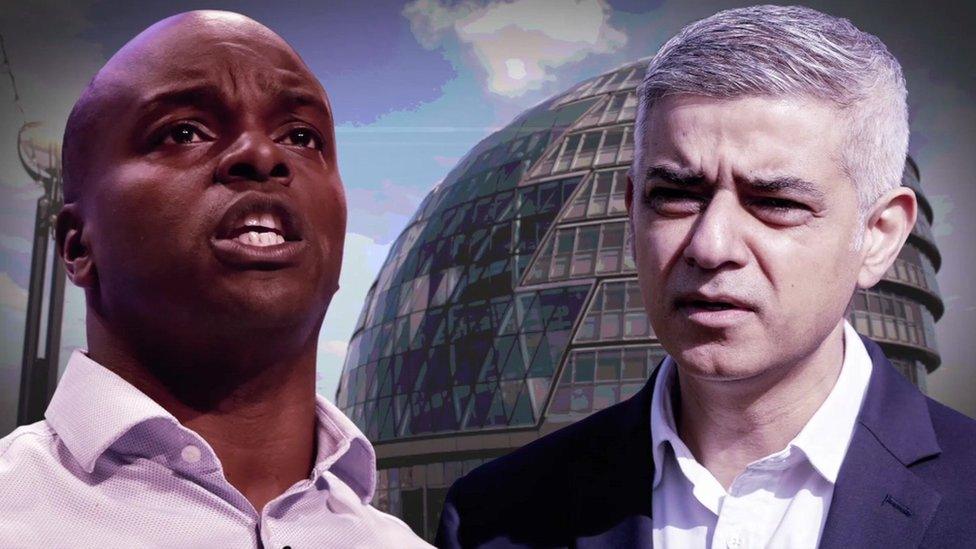London elections 2021: What does the London Assembly do?
- Published
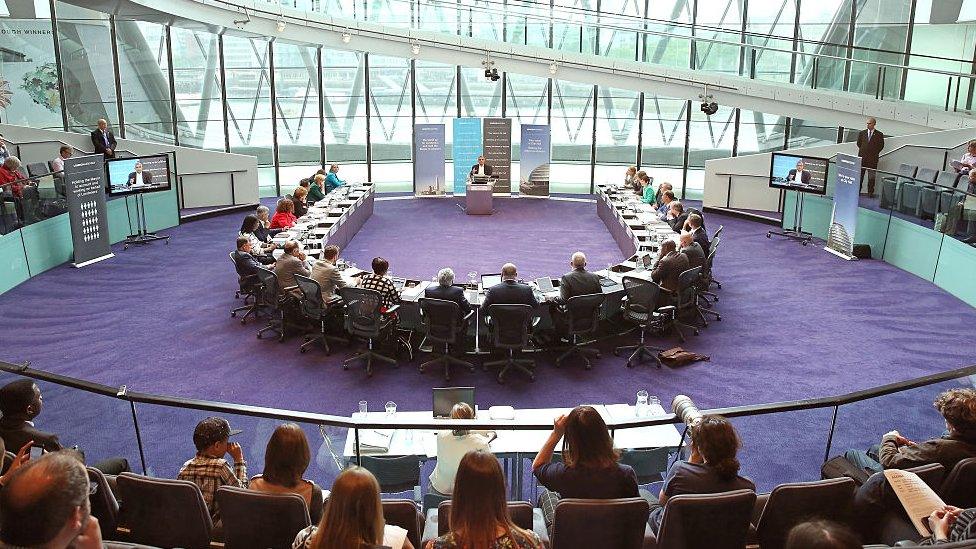
The Greater London Authority is the top of the food chain in London politics. It is made up of the mayor of London and the London Assembly members. We have covered the mayor's role, but what can the London Assembly do?
Based at City Hall, for now, the London Assembly is composed of 25 members, elected at the same time as the mayor.
Membership of the London Assembly is actually split in two - with 14 representing constituencies representing two boroughs, and the other 11 are elected by a party-list system.
The salary of an Assembly Member (AM) is currently £58,543 per year, while higher salaries for those holding key roles. Assembly Members who also work as MPs receive a two-thirds abatement to their salary.
The key role of the assembly is to hold the mayor to account. But what powers do members have to do this?
Blocking budgets
The main power of the assembly lies in passing or rejecting the mayor's budget.
In order to spend the £17bn budget, the mayor of London must get his spending plans approved by the London Assembly.
To reject the budget, two-thirds of the London Assembly must vote against it. This has never been done.
Assembly members are also allowed to propose amendments to the budget, but this again needs a two-thirds majority to be accepted.
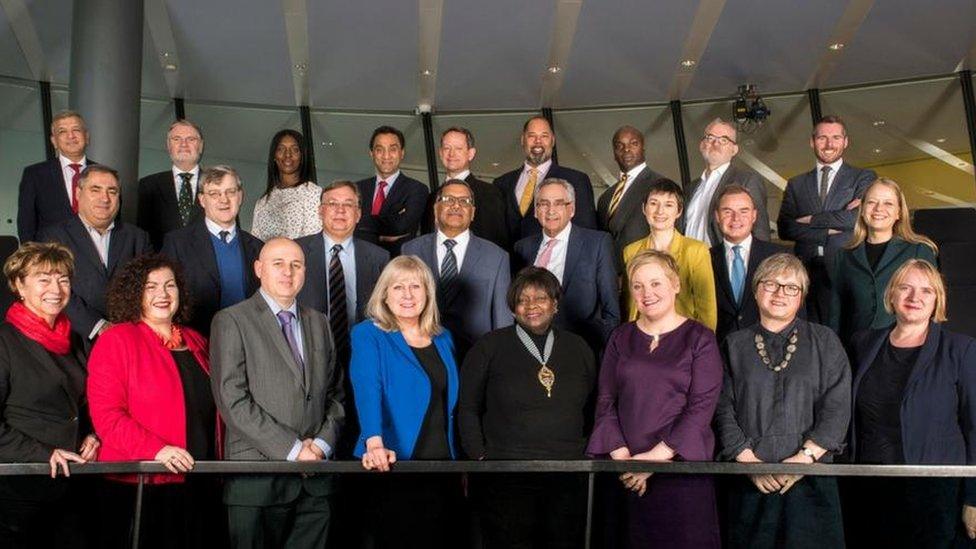
The London Assembly is made up of 25 members from across the political spectrum
Committees
The London Assembly has several committees which scrutinise the mayor's key powers, such as the transport committee and police and crime committee.
But it has no power to change the mayor's decisions in any of these areas.
Instead, it checks if policies are working and lead inquiries into major events. This mirrors the committee system in the houses of parliament.
While the committees cannot make the mayor change his mind, their findings can often influence decision making.
The results of these inquiries are public and many require a response from the mayor.
Reports by committees provide the public with detailed analysis of decisions which affect Londoners.
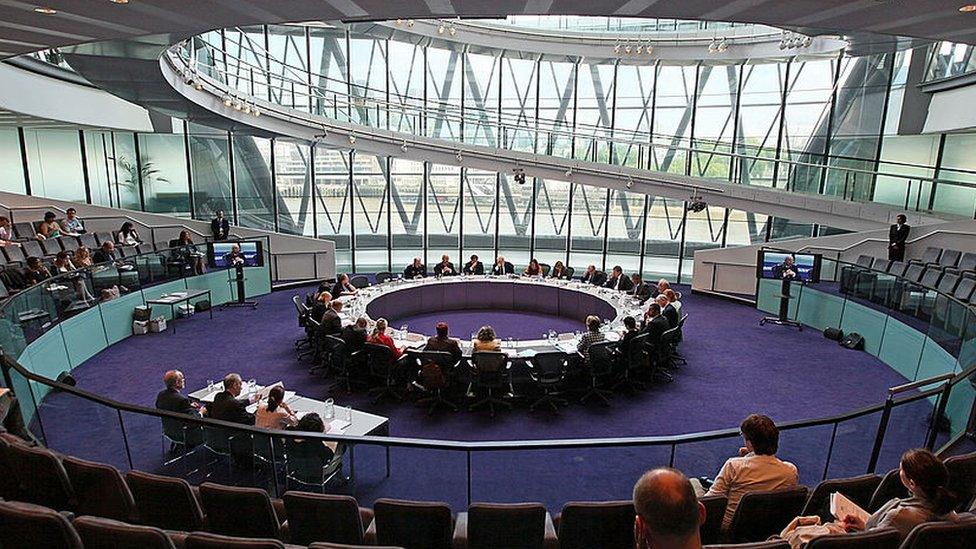
Questioning the mayor
The mayor and their officials must answer questions put to them by London Assembly members.
These questions can either be put in writing, or in person during 10 Mayor's Question Time sessions a year and full meetings of the London Assembly.
Through these questions, the London Assembly gets greater details on how the capital is being run.
Confirmation hearings
The assembly can hold confirmation hearings for the mayor's pick for some of City Hall's top jobs.
Proposed candidates for jobs such as Chair of Transport for London must attend the hearings and answer questions from assembly members.
The mayor cannot grant the job until the end of the confirmation process.
But ultimately the mayor can choose to ignore any recommendations from the assembly on who they hire.
London experts
The London Assembly is perhaps best viewed as a pool of London experts who try to influence the running and administration of the city.
Many have worked their way up through local council politics or run businesses and charities in London.
Some London Assembly members become MPs, like James Cleverly, Kemi Badenoch and David Lammy.
Some go the other way like Andrew Dismore, the former MP for Hendon who has been a London Assembly member since 2012.
Related topics
- Published22 March 2021
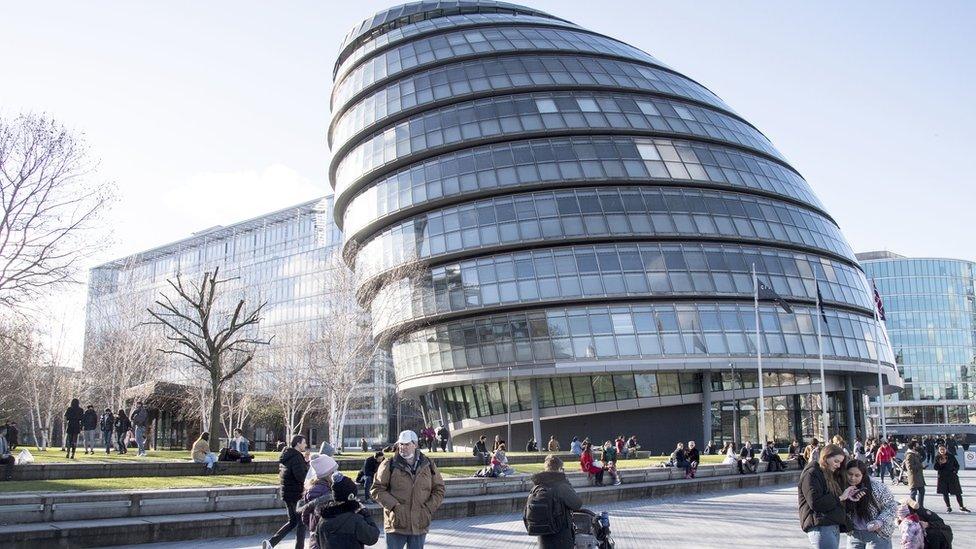
- Published22 March 2021
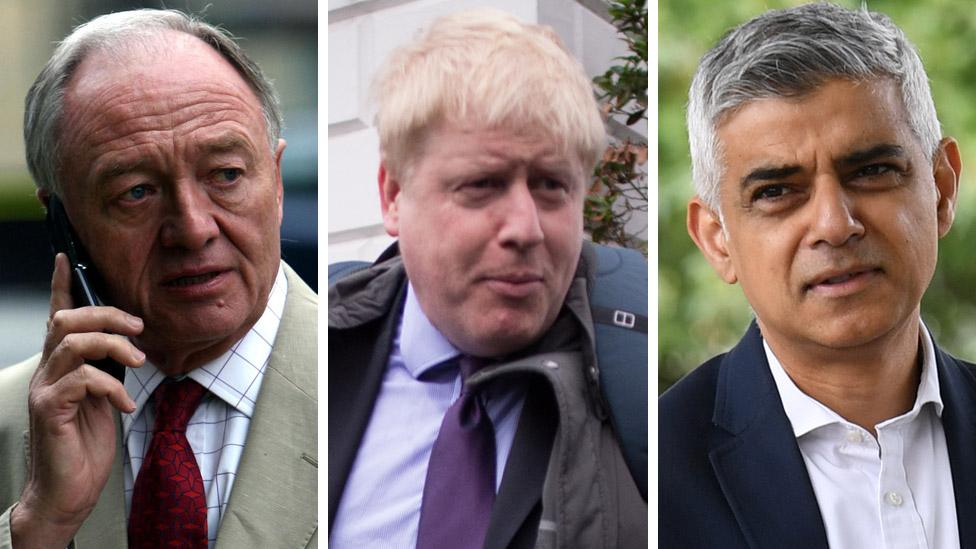
- Published25 March 2021
